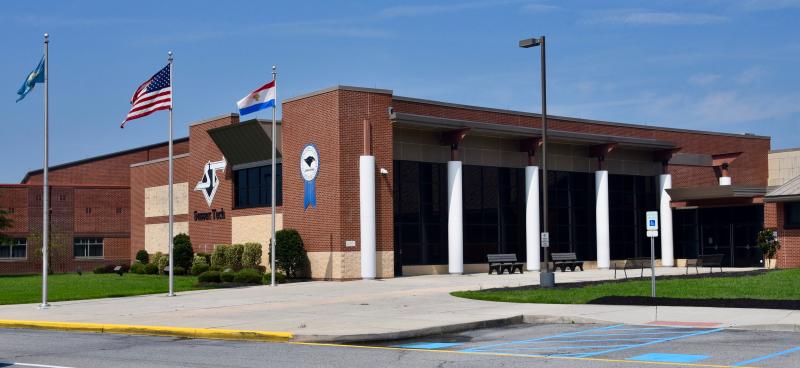State denies funding for new Sussex Tech
The Delaware Department of Education denied a certificate of necessity requested by Sussex Tech to build a new, $150.5 million replacement school to serve more students than state law allows.
Delaware Department of Education spokesperson Alison May said the department’s total request for the 2021 fiscal year was $167.8 million; funding still must be approved by the General Assembly through the bond bill.
“Sussex Tech did not make the recommendation list because the cost was too large to fit into the department’s request package, given the state’s bonding limitations, projects already approved in prior years for multiyear funding, and state capital needs for nonschool projects,” May said.
May said priorities for district projects were determined based on district growth. Vocational school districts do not fall into capacity projects because they are capped as to how many students they can accept, she said.
Sussex Tech is about 294,000 square feet with 1,250 students. The proposed building would have been about 313,000 square feet with capacity for 1,600 students. According to Delaware code, total enrollment at Sussex Tech cannot exceed 1,250 students, May said.
Despite the setback, Sussex Tech Superintendent Stephen Guthrie said he is committed to building a new school because the current school is in poor physical condition.
“Making repairs as problems develop is like slapping a Band-Aid on a severely bleeding wound,” Guthrie said. “We are wasting money on critical repairs that could be spent on new HVAC or carpentry tools, updated computer equipment or additional teachers.”
Guthrie said $14 million has been spent on recent maintenance, including roof repairs, renovations, security upgrades and an HVAC system overhaul. Last summer, the district spent $70,000 to replace 170 feet of collapsed stormwater pipe. A failing drainage system at the stadium and pipes under several parking lots are under evaluation.
In August, school officials outlined three options for improvements: renovating the main school for $177.6 million, renovating only newer wings and replacing older wings for $179.2 million or building a new school for $150.5 million.
School board President Warren Reid said the board endorsed replacing the school to save taxpayer money. All Sussex County property owners would pay for a replacement Sussex Tech school through property taxes; vo-tech schools are not subject to taxpayer referendum.
By comparison, a decade ago, Cape Henlopen School District built a new, $73.8 million, 210,000-square-foot school to replace the aging Cape High. The new school was approved by voters in a March 2006 referendum. According to school data, 1,220 students were enrolled at the new Cape High in the 2009-10 school year. In a March 2018 referendum, voters approved a $16 million expansion to Cape High to provide classroom space for up to 400 students, including 20 additional classrooms, a cafeteria expansion and four Consortium areas.
Obtaining a certificate of necessity is the first step a school must take to obtain state support and funding.
May said certificates of necessity were approved for a new Ennis School in Indian River School District and conversion of William Henry Middle School in Capital School District into a countywide special school. Both programs are 100 percent state-funded, she said.
Top priorities for district projects were determined based on district growth, May said. Appoquinimink received certificates of necessity to purchase land for a new K-12 campus, elementary school and kindergarten center.
Indian River received certificates of necessity for a new Sussex Central High School, which will allow the district to use the existing building as a middle school and alleviate overcrowding at both the middle and high school levels.
Both districts can move forward to referendum for the local share of the capital funding, which ranges from 20 to 40 percent, depending on the district, May said.
In Appoquinimink School District, certificates of necessity were approved to replace the roof and HVAC system at Middletown High School and to allow the district to ask voters to support replacing four turf fields at 100 percent local cost.
May said due to budget limitations, other large projects were not included in the 2021 fiscal year budget request, but certificates of necessity for several acutely needed renovations were approved for a roof replacement at Seaford’s Central Elementary, roof and mechanical replacement at Smyrna’s North Smyrna Elementary, and replacement of mechanical and electrical systems at Christina’s Christina Early Childhood Center and replacement of HVAC systems at Christina’s Marshall and Leasure elementary schools.






















































